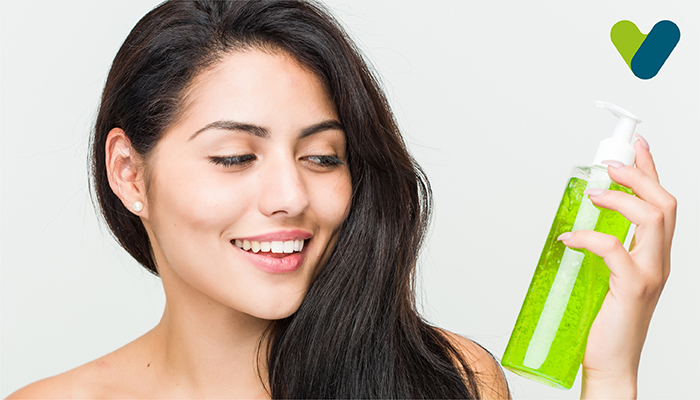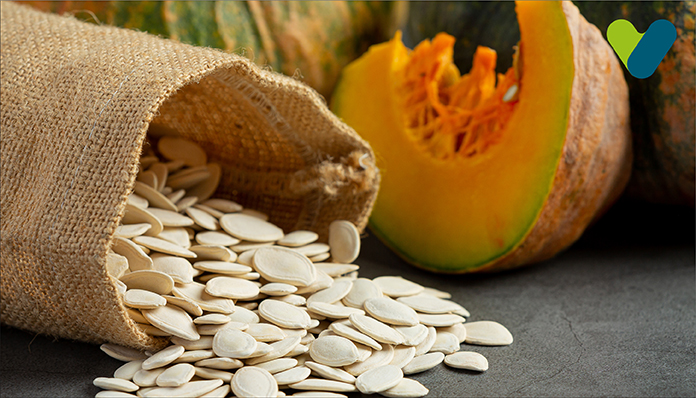Soumili (18-years-old) has very long, lustrous, and shiny hair and she loves to exhibit her glossy hair in front of everyone. But for the last two to three weeks, Soumili noticed that her hair is getting dull and parched. Moreover, she has experienced hair loss too. Soumili couldn’t find the reasons for her hair damage, though she is physically healthy and fit. While searching on the internet, Soumili came to know that aloe vera for hair is beneficial and makes hair shinier, thicker, and stronger.
Aloe vera is a plant that grows in hot and dry climates. This plant is beneficial in treating various skin problems like wounds, acne, and burns. Many people often consume aloe vera as food and drink to get rid of several problems like inflammatory bowel disease, diabetes, hepatitis, and so on.
Benefits of Aloe Vera on Hair
A plethora of studies have recommended aloe vera gel for hair because it contains plenty of good chemicals and active ingredients. You can purchase an aloe vera gel from any pharmacy or store or even scoop it out of leaves cut fresh from the plant. The gel is transparent and watery.Soothes Itchy Scalp
Seborrheic dermatitis or dandruff is a common hair problem for many people (irrespective of gender). This makes your skin itchy and flaking under your hair. By using an aloe vera gel, you can overcome this problem. A study was conducted in 1998 and it has been found that aloe vera fixed the scalp inflammation that is responsible for dandruff. Aloe vera contains many fatty acids that have anti-inflammatory properties.
Deep Cleanses your Oily Hair
Aloe vera rinses your hair efficiently. Aloe vera removes extra sebum and residues from other hair products. Interestingly, aloe vera doesn’t injure your hair shaft while cleaning it. Aloe vera is very mild, gentle, and conserves the integrity of your hair. This is the prime difference between aloe vera and other hair products. To make your hair healthier, shinier, and softer, use aloe vera.
Strengthens and Repairs your Hair
Aloe vera comes up with many essential vitamins, like A, C, and E. All three vitamins play an imperative role in promoting healthy cell growth and glossy hair. Aloe vera also contains vitamins B12 and folic acid. Both these vitamins prevent hair fall and make your hair wholesome.
Many people prefer to use an aloe vera product on their skin after sun exposure. This is because aloe vera products contain high collagen and come up with cooling properties. Since aloe vera contains many vitamins, hence it might repair sun damage to your hair. Is aloe vera good for hair? The answer is certainly yes.
Promotes Hair Growth
Many people claim that aloe vera is good for hair growth. But there is no scientific evidence to establish this claim. Many experts and scientists believe that alone in (a chemical compound in aloe vera) is responsible for promoting hair growth. That’s why it is beneficial for people who are suffering from hair loss (alopecia). Aloe vera is beneficial in improving the health of hair health and also minimizes breakage. Thus, aloe vera plays an important role in hair growth.
Risks of using Aloe Vera
Though aloe vera is beneficial for your overall health, there are certain risks that you should be aware of before using it on your skin. Some people are allergic to it and may develop a skin rash. Before applying to your hair or skin, rub a small on your wrist. Then, wait for 2 hours to see whether it develops any rashes or not.If you are using hydrocortisone steroid creams, then you must be very careful before using aloe vera. It may enhance the amount of cortisone absorbed by your skin.
You should be extra careful before consuming aloe vera. Aloe vera latex and whole leaf extracts are riskier if you consume them in high doses. You may experience some side effects like kidney problems, abdominal cramps, and diarrhoea. Aloe vera may also interact with other medications like anticoagulants and diabetes drugs.
How to Use Aloe Vera?
You can conveniently purchase aloe vera from supermarkets or medicine stores. Always buy a product that contains 100% aloe vera, without any additional ingredients like fragrances and alcohol. You have an aloe plant at your house; you can also extract the gel from the leaves. You can even purchase aloe leaves from natural food stores.Let’s take a look at how to extract the aloe vera from an aloe vera plant.
- Remove a leaf carefully from the plant (pluck only older and thicker leaves from the plant)
- Let the yellow latex abate from the leaf and abandon the latex
- Wash the leaf
- By using a sharp knife, try to remove the barbed ends
- Now, use your knife lengthwise along the aloe leaf to extirpate the skin
- Scoop the transparent gel


